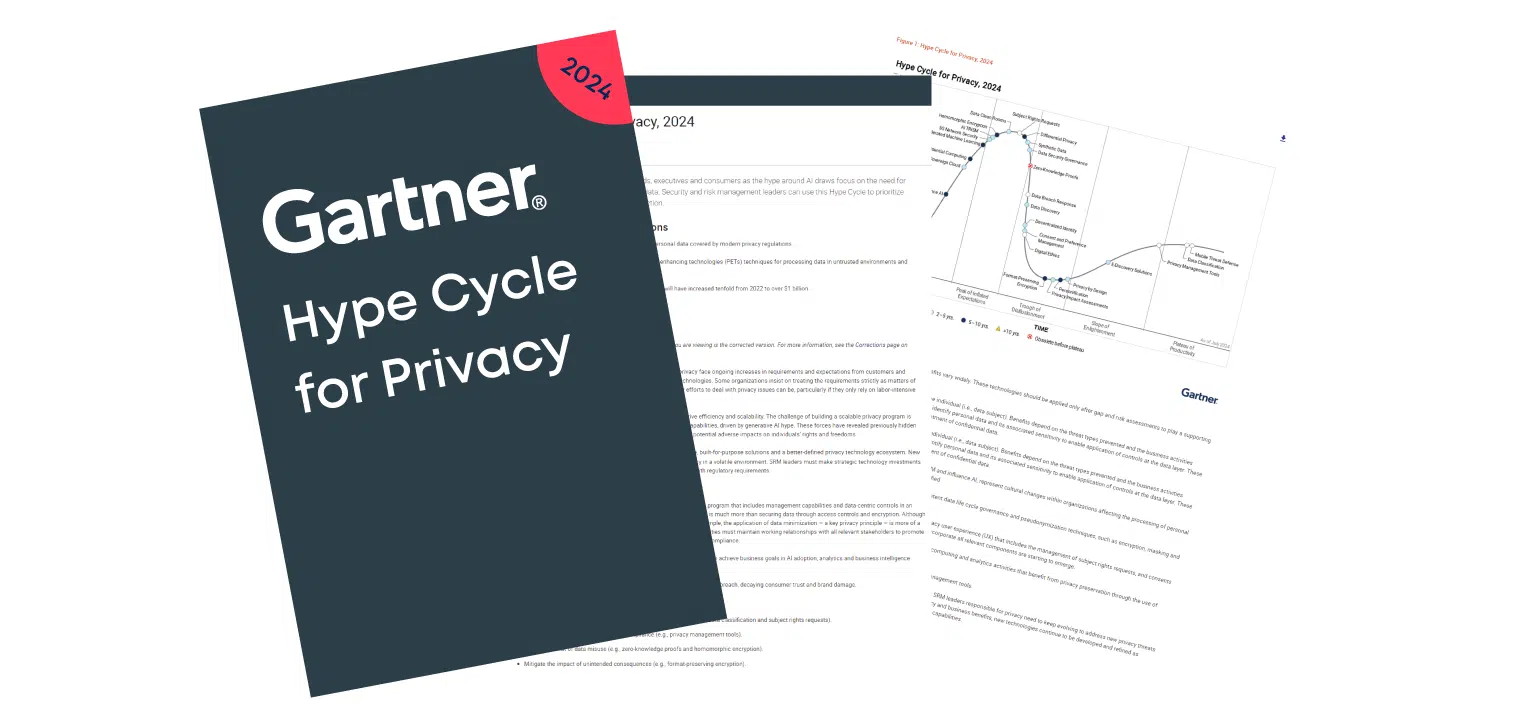The IDTA: A transformative period for UK Data Transfers and its impact on Higher Education
Posted: October 3, 2024
The International Data Transfer Agreement (IDTA) marks a significant milestone in the UK’s data protection landscape, especially in the post-Brexit era. As the UK navigates its new regulatory environment, the IDTA plays a crucial role in ensuring that international data transfers remain secure and compliant with UK data protection standards.
Brexit and the evolution of UK Data Protection
How Brexit changed the landscape
Brexit brought about several changes to UK data protection laws, although many organizations continue to operate under familiar frameworks such as the Data Protection Act 2018 and the UK GDPR. The most significant shift has been in the area of data transfers, necessitating new mechanisms to ensure compliance and protection of personal data.
The UK GDPR, which mirrors the EU GDPR, continues to govern data protection in the UK. However, Brexit has given the UK the autonomy to amend its data protection laws to better suit its national interests, leading to the introduction of the IDTA, which provides a tailored solution for international data transfers post-Brexit.
Why the IDTA?
From Schrems II to new transfer mechanisms
The Schrems II judgement by the Court of Justice of the European Union (CJEU) invalidated the EU-US Privacy Shield and raised concerns about the adequacy of Standard Contractual Clauses (SCCs) for international data transfers, highlighting the need for mechanisms to ensure that personal data transferred outside the EU and UK is adequately protected.
In response, both the EU and the UK have worked on developing new mechanisms to safeguard personal data transfers. The IDTA is the UK’s tailored solution to address these challenges and provide a strong legal framework for data transfers beyond UK borders.
Introducing the IDTA
The IDTA emerges as a critical tool for UK organizations, designed to meet the specific needs of post-Schrems II data transfer requirements. It offers a thorough legal framework that ensures personal data transferred outside the UK is protected to the same standards as within the UK.
The IDTA sets out contractual obligations for both the data exporter (in the UK) and the data importer (in the third country) to protect the privacy and rights of individuals whose data is being transferred. It includes clauses on data handling, processing, security measures, and the rights of individuals.
When should organizations use the IDTA?
Practical applications of the IDTA
The IDTA is essential for international data transfers between organizations, particularly when dealing with countries that do not have adequacy agreements with the UK. It serves as a contractual safeguard, ensuring that personal data is equally protected, similar to the role previously played by SCCs and the EU-US Privacy Shield.
Organizations should use the IDTA when transferring personal data to countries outside the UK that do not have an adequacy decision, including transfers to third countries where the data protection standards may not be equivalent to those in the UK. The IDTA ensures that the data importer agrees to uphold the same level of data protection as required under UK law.
Guaranteeing equal data protection
Maintaining high standards of data protection for transfers to non-UK countries is crucial. The IDTA fulfills this role by providing a legal framework that ensures personal data is handled with the same level of care and security as within the UK.
The IDTA includes provisions for data security, data subject rights, and obligations of the data importer to ensure that personal data is protected throughout the transfer process, helping to mitigate the risks associated with international data transfers and ensures compliance with UK data protection laws.
What does the IDTA mean for Higher Education?
Educational institutions, including schools, colleges, and trusts, must take proactive steps to ensure compliance with the International Data Transfer Agreement (IDTA). This begins with a comprehensive audit of all existing contracts to identify those that involve the transfer of personal data to third countries. Special attention should be given to contracts with suppliers that store data outside the European Economic Area (EEA), as these are more likely to require adjustments to meet IDTA requirements.
When drafting new contracts, it is crucial to incorporate specific provisions that comply with the IDTA. This includes clauses related to data protection, security measures, and the rights of data subjects. Engaging legal experts who specialize in data protection can be beneficial to ensure that all new contracts are fully compliant with IDTA requirements.
Educational institutions should establish a schedule for regular reviews of data transfer practices and contracts to ensure ongoing compliance with the IDTA. Be prepared to update contracts if there are changes in data protection laws or if new risks are identified. Additionally, providing training for staff involved in contract management and data protection is vital. This ensures they understand the requirements of the IDTA and the importance of compliance. Promoting awareness of data protection issues and the IDTA among all staff members can build a culture of compliance.
Regularly assessing the risks associated with data transfers to third countries and implementing measures to mitigate these risks is necessary. Ensuring that appropriate technical and organizational measures are in place to protect personal data during transfers is equally important.
Finally, maintaining detailed records of all data transfer activities, including the contracts involved and the measures taken to ensure compliance with the IDTA, is essential. Being prepared for potential audits by regulatory authorities by maintaining comprehensive documentation of compliance efforts will help educational institutions demonstrate their commitment to protecting personal data.
How IDTA can affect your institution
Compliance and legal obligations
- Higher education institutions must navigate a complex landscape of international data protection regulations. The GDPR and IDTA, for example, impose strict requirements on how personal data is transferred outside the EU and UK, respectively. Institutions must ensure that any data transferred to third countries has adequate protection, often requiring the use of standard contractual clauses (SCCs) or binding corporate rules (BCRs). Failure to comply can result in significant fines, legal action, and damage to the institution’s reputation. Institutions must also stay updated on changes in data protection laws and adapt their policies and practices accordingly.
Data security and privacy
- Data security is paramount when transferring personal data internationally. Institutions must implement security measures, such as end-to-end encryption, secure data transfer protocols (e.g., HTTPS, SFTP), and multi-factor authentication. Regular security audits and vulnerability assessments are essential to identify and mitigate potential risks. Institutions should also establish incident response plans to quickly address any data breaches or security incidents. Ensuring data privacy involves not only technical measures but also organizational policies, such as data minimization, access controls, and staff training on data protection best practices.
Collaboration and research
- International collaborations and research projects often require the exchange of sensitive data, including personal data of research participants. Institutions must ensure that these data transfers comply with relevant data protection regulations. This may involve obtaining explicit consent from data subjects, anonymizing data where possible, and implementing data sharing agreements that outline the responsibilities of each party. Compliance with data protection laws is crucial for securing research funding, particularly from international sources, and for maintaining the trust of research participants and partners.
Student recruitment and admissions
- Recruiting international students involves transferring personal data across borders, including application information, academic records, and financial details. Institutions must ensure that these data transfers are secure and compliant with data protection laws. This includes using secure online application portals, encrypting data during transmission, and implementing strict access controls. Institutions should also provide clear information to prospective students about how their data will be used and protected. Ensuring data protection in the recruitment process can enhance the institution’s reputation and attract more international students.
Operational efficiency
- Efficient international data transfers can streamline various administrative processes, such as student admissions, financial aid, and academic records management. Institutions that can securely and efficiently transfer data internationally are better positioned to provide timely and effective services to students and staff. This may involve investing in integrated data management systems that facilitate secure data sharing across departments and with external partners. Automation of routine data transfer tasks can also improve efficiency and reduce the risk of human error.
Cultural and ethical considerations
- Different countries have varying cultural and ethical standards regarding data privacy. Higher education institutions must be aware of these differences and ensure that their data transfer practices respect the privacy expectations of individuals from different cultural backgrounds. This may involve conducting privacy impact assessments (PIAs) to identify and address potential privacy risks. Institutions should also engage with stakeholders, including students, staff, and international partners, to understand their privacy concerns and expectations. Respecting cultural and ethical considerations in data protection can enhance the institution’s reputation and build positive relationships with international stakeholders.
Technological infrastructure
- Investing in the right technological infrastructure is crucial for supporting secure and compliant international data transfers. This includes data management systems that provide security features, such as encryption, access controls, and audit logs. Institutions should also implement secure communication channels, such as encrypted email and secure file transfer protocols, to protect data during transmission. Regular updates and maintenance of IT systems are essential to address security vulnerabilities and ensure compliance with data protection regulations. Institutions may also consider adopting cloud services that offer strong data protection measures and comply with international data transfer requirements.
Reputation and trust
- Maintaining compliance with international data protection regulations and ensuring the security of data transfers can enhance the institution’s reputation and build trust with students, staff, and partners. A strong reputation for data protection can be a competitive advantage in attracting international students and research collaborations. Institutions should communicate their data protection policies and practices clearly to stakeholders and demonstrate their commitment to safeguarding personal data. Transparency and accountability in data protection can build trust and confidence among stakeholders, contributing to the institution’s overall success.
Key deadlines
The IDTA has been available for all new contracts since 21st September 2022. Institutions must replace old SCCs with the IDTA by 21st March 2024 to remain compliant.
Educational institutions should be aware of these deadlines and take proactive steps to update their contracts accordingly, including reviewing existing contracts and ensuring that any new contracts comply with the IDTA requirements.
Practical steps for compliance
Schools, colleges, and trusts should monitor contract end dates and initiate conversations with suppliers early to ensure smooth transitions to the IDTA. This proactive approach will help meet IDTA obligations and avoid disruptions.
Institutions should also conduct regular audits of their data transfer practices to ensure ongoing compliance with the IDTA. This includes reviewing data transfer agreements, conducting transfer risk assessments, and implementing additional safeguards where necessary.
A recap on the IDTA’s role in UK data privacy
The IDTA is pivotal in maintaining data protection standards and facilitating secure international data transfers. Staying informed and proactive in adopting the IDTA is essential for continued compliance and avoiding potential disruptions.
By understanding and implementing the IDTA, organizations can ensure that personal data transferred outside the UK is protected to the same high standards as within the UK. This not only helps to maintain compliance with UK data protection laws but also builds trust with individuals whose data is being transferred.


